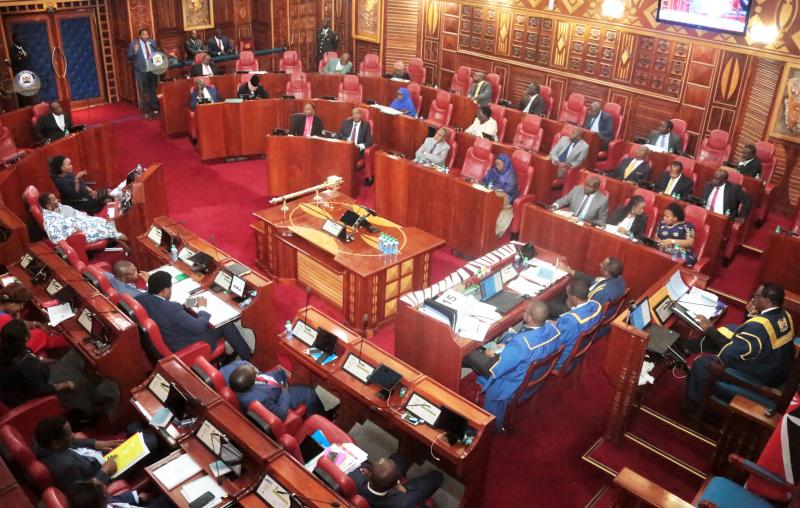×
The Standard e-Paper
Home To Bold Columnists

Senate plenary session in progress. Parliamentarians are among public officers enjoying sitting allowance. [Boniface Okendo, Standard]
A proposal to scrap sitting allowances for public officers would save taxpayers billions of shillings if it becomes law, with MPs becoming the major casualties.